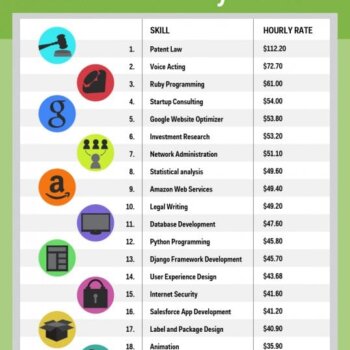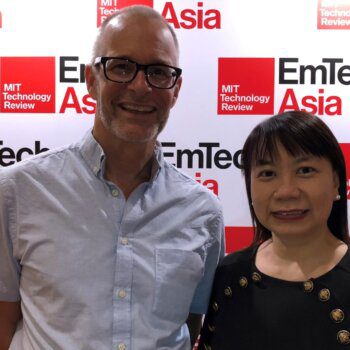This is one in a series of articles and interviews about conscious business leadership, which is about leaders creating and promoting workplaces of understanding, honesty, and compassion, for the betterment of their employees, their community, their organization and world.
Dr Julian Hosp co-founded the Singapore based FinTech company TenX, the only company worldwide that makes multiple digital currencies instantly spendable anytime anywhere by offering a debit card payment system to its users. He was named one of the top Blockchain and Cryptocurrency experts to follow in 2017. I met him at Slush Singapore and Women in Tech where he was passionate to educate the audience on a new world in finance.
To be a disrupter one has to have a philosophy of another world. What is your ideal world in terms of finance?
I am a scientist and I use the past trends to deduce ideas for the future. I look for an adaption of what can be possible. Statistically, everyone cannot be equal. There will always be a small proportion who will outperform the rest; in all aspects of life. Financially, my hope is for the ones who can’t or don’t perform to those standards, are not left behind.
My world-view changed around two and a half years ago. Initially, I was of the opinion that people who didn’t do what was the task at hand or seemed productive, shouldn’t get monetary compensation. I saw people who were involved in pursuits I didn’t see as productive, like meditating or sitting by the beach day dreaming as non-valuable. However now I am more aware, that for everyone doing something is that something they are to do. I now support the need for a minimal base income.
Are they living to the standards I set for myself? No. However, their basic living should be met if they can do basic tasks and essentially there should be no cause of suffering, where possible.
That being said, TenX is not merely an attempt to save the world, again as a scientist and business person, the business case was clear. If we are not doing it – someone else will. The future of finance is a decentralized marketplace full of financial services, that provide the lowest cost, highest security and best performance to its users. At TenX it is our mission to bring the entire financial system right to their fingertips.
In the past, there was control and regulation of people now there is less and maybe soon no control. Some people will want to be controlled and told what to do. They may want to use regulated and centralized authorities to lead and depend on. I suspect 5-10% of a population would want guidance and control. How about the rest of us? The Internet has flourished. We already see less friction of talent explosion and exchange. Peer to peer economies.
Once the access to money becomes easy and we have competition spurring results. More people will and can step up in all industries. This will lead to my world-view of a more inclusive monetary system and therefore world.
As a leader, I try to build the ideal world in my own leadership and the company I co-founded. I see myself as leader than manager. I am not as good as managing people who may need it. I tend to lead by inspiration and “wow” acts of behaviour. This inspires best in me and this allows them to express the best in them. Optimal leadership means leading by example and getting the best out of the team. My example is not the example they have to become. I need only be the best version of myself.
When did you doubt your vision and implementation?
I hardly ever doubt the big picture but yes I did doubt the approach, many times. I had some arguments with my co-founder. I often had to contemplate that maybe other approaches are right and mine, wrong.
A dark hour of soul searching was when China banned Bitcoin. I wasn’t as upset by the ban but by the rationale behind it. Now after some insight, I see that their fear could be more around Blockchain and the decentralization track transition history. Cryptocurrency doesn’t need a centralized authority so if you take it to the fullest extent of that idea, it may have made the Chinese government rein that freedom in.
Eventually we can communities that are decentralized for passports, other forms of identification, ownership of large things like homes; as long as I have the cryptography running, no one can shut me down. Industry now leads and influences the government’s ability to act. I believe the Chinese government feels that strongly.
How did you have this vision of TenX?
I trained as a doctor and then after a year of practice, I quit. My friends advised me to go into personal development instead. I went to Hong Kong and tried many things and coached. But was always looking for a bigger project to be immersed in. I was almost lost because I found nothing. My personal lowest point was right before I met my co-founder of TenX, Toby, by coincidence in 2014 on the beaches of Thailand. It wasn’t an immediate partnership, I always have had a curious mind so I spent some time to learn more. If you look at my first Youtube for TenX in June 2015 you can see my hesitancy as I entered this industry. Do I still have doubts very now and then, yes. However now I understand better how this works and we are learning and improving every day. Even Mark Zuckerberg at the beginning of Facebook spent months if not years re-thinking if Facebook would be the idea to run with.
If you can advise an entrepreneur, what is the next big thing in this space?
Decentralization is the problem to solve. As mentioned, passports, cross-country transfers, purchasing large items if you want to get into that space and solve the problems which arise with decentralization. I love science so I am always looking at Space tech and AI too.





























